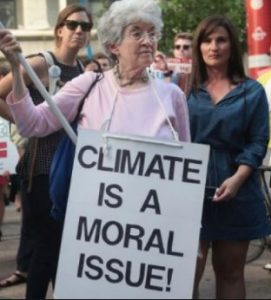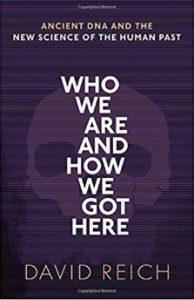 Three new reports catalogue how intensive farming methods are destroying the natural world and threatening our future .
Three new reports catalogue how intensive farming methods are destroying the natural world and threatening our future .
In the journal of Biological Conservation, Francisco Sanchez-Bayo reports a ‘catastrophic decline’ in insect species.
A UN report on the state of food biodiversity reports a growing reliance on a small number of crop species to supply our food; just 9 species account for 66% of crop production.
A report by the Institute of Public Policy Research identifies that topsoil is being lost 10 to 40 times faster than it is being replaced. Since the 1950’s, 30% of the world’s arable land has become unproductive due to erosion.
It all makes grim reading. However, there are small sprigs of hope.
The Union of concerned scientists https://www.ucsusa.org/food-agriculture/advance-sustainable-agriculture/what-is-sustainable-agriculture claim that ‘there’s a transformation taking place on farms across the United States.’
For decades, we’ve produced the bulk of our food through industrial agriculture—a system dominated by large farms growing the same crops year after year, using enormous amounts of chemical pesticides and fertilizers that damage soils, water, air, and climate. This system is not built to last, because it squanders and degrades the resources that it depends on.
But a growing number of innovative farmers and scientists are taking a different path, moving toward a farming system that is more sustainable—environmentally, economically, and socially. This system has room for farms of all sizes, producing a diverse range of foods, fibers, and fuels adapted to local conditions and regional markets. It uses state-of-the-art, science-based practices that maximize productivity and profit while minimizing environmental damage.
Some proponents of intensive farming claim that its impacts are the price we must pay to “feed the world.” In fact, a growing body of scientific evidence has debunked this claim, showing that a more sustainable model can be just as profitable—and can meet our needs for the long haul.

 The Turk Umut Ozkurmh has been pondering the rise of the far right in Sweden, where he lives. This paragraph from his article in the Guardian is worth quoting:
The Turk Umut Ozkurmh has been pondering the rise of the far right in Sweden, where he lives. This paragraph from his article in the Guardian is worth quoting: We are suffering a crisis of moral leadership. Our religious and political leaders are overwhelmed by their own issues born of past events. No one is looking at the big picture or is statesman enough to to lead us safely through the year’s ahead.
We are suffering a crisis of moral leadership. Our religious and political leaders are overwhelmed by their own issues born of past events. No one is looking at the big picture or is statesman enough to to lead us safely through the year’s ahead. GDP growth isn’t the only objective for society, though sometimes it seems to be the only measure of success that all our politicians endorse. There are arguably other more relevant measures of a nation’s success. This week the UK’s Office of National Statistics published its figures on life expectancy for 2015 to 2017; it shows that life expectancy in the UK is 79 years for men and 83 years for women.
GDP growth isn’t the only objective for society, though sometimes it seems to be the only measure of success that all our politicians endorse. There are arguably other more relevant measures of a nation’s success. This week the UK’s Office of National Statistics published its figures on life expectancy for 2015 to 2017; it shows that life expectancy in the UK is 79 years for men and 83 years for women. Those in the Eugenics movement in the early twentieth century tried to show that this racial division had a scientific basis; that different races were essentially different species. This has since been disproved; we now know we are all one species that emerged some 200,000 years ago in Africa. The latest proof comes from David Reich in his book Who We are and How We got Here. He has shown conclusively that the makeup of our DNA is a result of tens of thousands of years of intermixing of peoples from different geographical regions. Differences in skin colour and facial and physical characteristics between people from different countries account for only one sixth of the natural variation in DNA between humans.
Those in the Eugenics movement in the early twentieth century tried to show that this racial division had a scientific basis; that different races were essentially different species. This has since been disproved; we now know we are all one species that emerged some 200,000 years ago in Africa. The latest proof comes from David Reich in his book Who We are and How We got Here. He has shown conclusively that the makeup of our DNA is a result of tens of thousands of years of intermixing of peoples from different geographical regions. Differences in skin colour and facial and physical characteristics between people from different countries account for only one sixth of the natural variation in DNA between humans. We need our politicians to plan our country’s future. We know that society is aging and that this will create huge problems for our health and social services. Surely the least we could ask of our politicians is to have a plan to deal with this challenge?
We need our politicians to plan our country’s future. We know that society is aging and that this will create huge problems for our health and social services. Surely the least we could ask of our politicians is to have a plan to deal with this challenge? [Veganism] drives up demand for crops that require high inputs of fertiliser, fungicides, pesticides and herbicides, while demonising sustainable forms of livestock farming that can restore soils and biodiversity, and sequester carbon… Counter-intuitive as it may seem, adding the occasional organic pasture-fed steak to your diet, could be the right way to square the circle.
[Veganism] drives up demand for crops that require high inputs of fertiliser, fungicides, pesticides and herbicides, while demonising sustainable forms of livestock farming that can restore soils and biodiversity, and sequester carbon… Counter-intuitive as it may seem, adding the occasional organic pasture-fed steak to your diet, could be the right way to square the circle. How do we develop the habits and systems that preserve nature and reduce pollution? Most people would agree with the aim of living a sustainable life on Earth. However, they do little in practice; compared with other pressures on their lives, creating an eco-friendly society seems much less important and far too difficult.
How do we develop the habits and systems that preserve nature and reduce pollution? Most people would agree with the aim of living a sustainable life on Earth. However, they do little in practice; compared with other pressures on their lives, creating an eco-friendly society seems much less important and far too difficult. What can we do as consumers? Well, for a start, we can stop buying anything in black plastic containers. The only reason black plastic is being used is that it makes the food look good. However black is the only colour that can’t be easily scanned by recycling machines; as a result, all black plastics are being sent to landfill.
What can we do as consumers? Well, for a start, we can stop buying anything in black plastic containers. The only reason black plastic is being used is that it makes the food look good. However black is the only colour that can’t be easily scanned by recycling machines; as a result, all black plastics are being sent to landfill. The Articles web-page is launched today.
The Articles web-page is launched today.